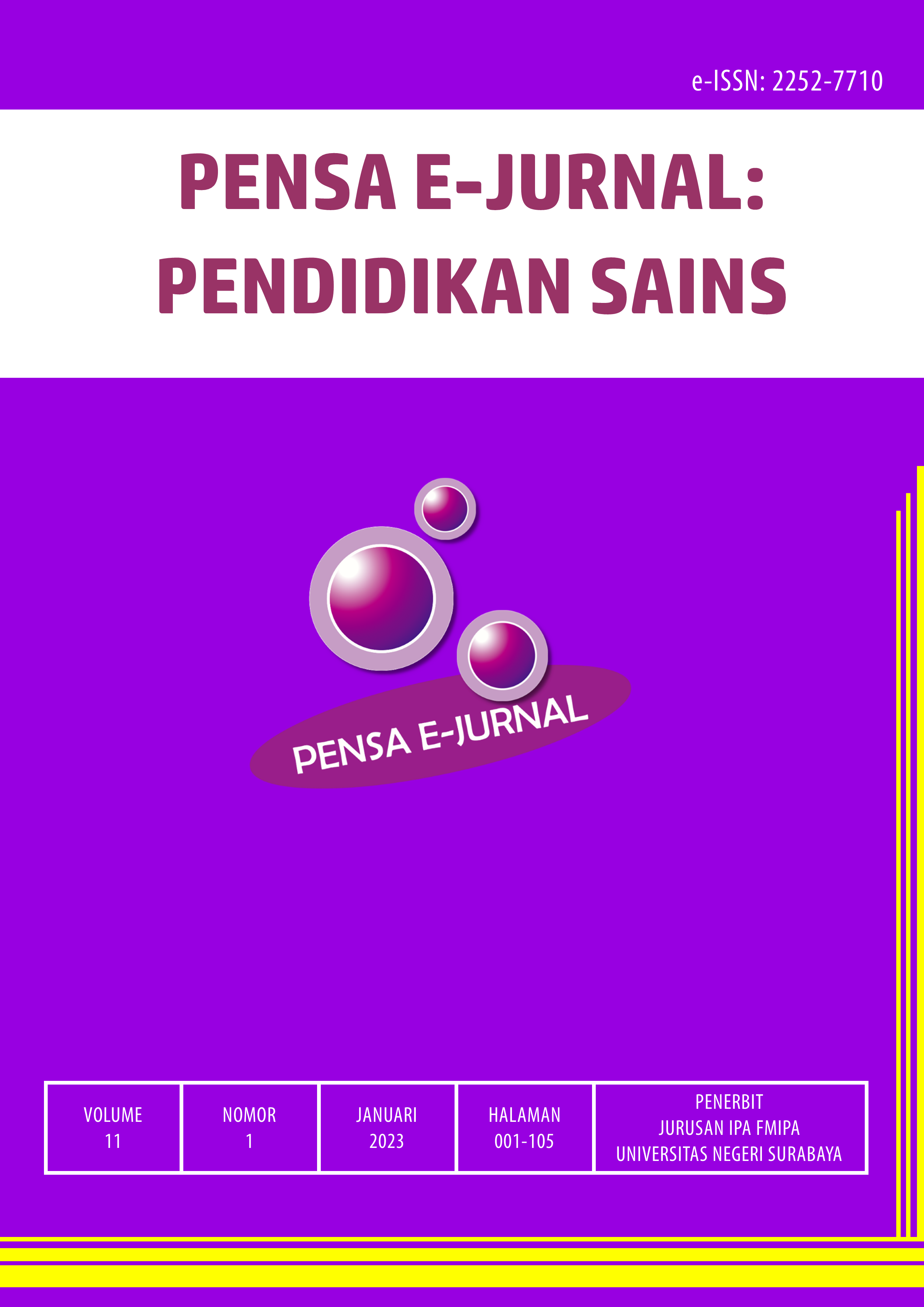UNSUR-UNSUR PENDEKATAN SAINTIFIK DALAM BUKU SISWA IPA MATERI ZAT ADITIF DAN ADIKTIF
DOI:
https://doi.org/10.26740/pensa.v11i1.48873Keywords:
Scientific approach, Science book, Addictive and addictive materialAbstract
Science teaching materials for additive and addictive substances should be reviewed from the content of the elements of a scientific approach in order to develop the ability of students to think. The purpose of this study was to identify the elements of a scientific approach contained in the science textbooks of SMP class VIII materials for additives and addictive substances. This research is a qualitative research. The object of this research comes from sources of 3 (three) books for class VIII science in junior high school which are determined on the basis of the books used in teaching science and addictive and addictive materials. This study uses the elements of a scientific approach from 5M (observing, asking, trying, analyzing and communicating). The analytical technique used in this research is content analysis by reading, studying and analyzing. The results showed that the elements of a scientific approach in the Education Unit Level Curriculum (KTSP) version of the book contained two elements, namely observing and asking questions, while in the Contextual Teaching and Learning (CTL) version there were four elements, namely observing, asking, trying and analyzing, for the 2013 Curriculum book (K-13) there are all elements ranging from observing, asking, trying, analyzing and communicating which have been presented well. The element of a scientific approach that must appear in every book is the element of observing and questioning which is the most basic skill..
Downloads
Downloads
Published
How to Cite
Issue
Section
 Abstract views: 305
,
Abstract views: 305
, PDF Downloads: 358
PDF Downloads: 358

















